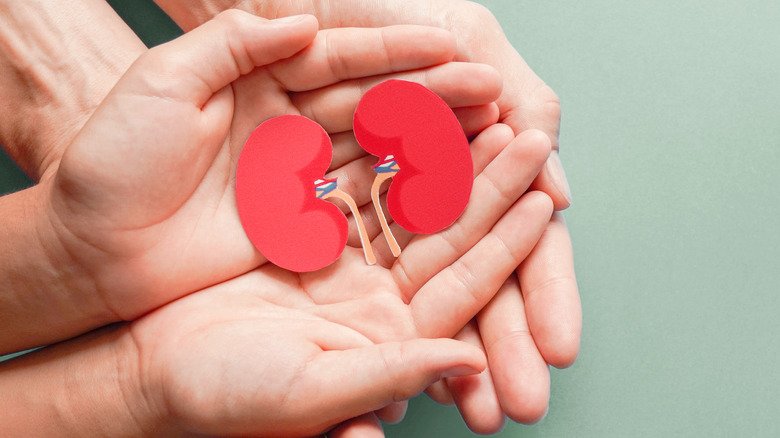The Real Reason More Women Donate Kidneys Than Men
Donating a kidney can make a huge difference in somebody else's life. Nearly as many people die each year while waiting for a kidney as receive them from a living donor, according to the National Kidney Foundation. If you're able to donate a kidney, it's something you may want to consider, especially if you are a man.
According to the Journal of the American Society of Nephrology (JASN), as of 2015 men comprised 63% of people who received kidney transplants, yet 63% of living kidney donors were women. Further research by JASN discovered that this disparity has only been growing with time, as fewer men have been donating kidneys over the years. This disparity is especially concerning in light of a 2020 study (via BMC Nephrology) that found that female-to-male kidney transplants are more likely to fail than male-to-male transplants. BBC notes that this may be because women's organs are smaller, so in some cases, their smaller kidneys aren't sufficient for the demands of a large body.
There are multiple reasons why fewer men donate kidneys
One reason more women donate kidneys is precisely that more men need kidney transplants. Since spouses are among the largest groups of people to donate organs (per Health Resources & Services Administration), fewer husbands than wives in heterosexual couples may confront the need to donate an organ. But this is not the whole story, since more women than men also donate to other family members besides spouses (via JASN).
Gender roles are another factor in the disparity. Women are socialized to take on a caregiving role for their families, and organ donation may be an extension of that, says BMC Nephrology. In addition, people who donate kidneys need to take weeks off of work, which can take a big financial toll, and many families rely more on men than on women for income (per Transplantation Proceedings). Indeed, income has a greater influence on men's than women's likelihood to donate organs, according to JASN. Some research (via Current Transplantation Reports) suggests that providing wage reimbursement for kidney donors may help reduce disparities in kidney donation. In the meantime, the National Kidney Foundation notes that there are some programs available to assist kidney donors with lost wages.


